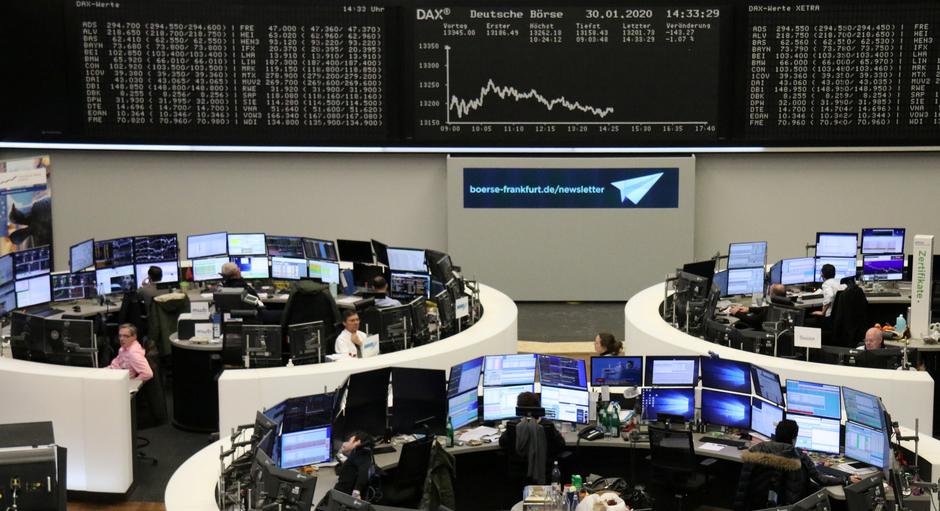
Global stocks hover near seven-week lows as virus fears hit China markets after holiday
Global stocks hover near seven-week lows as virus fears hit China markets after holiday
LONDON: A gauge of global stocks hovered near seven-week lows on Monday as Asian stocks plunged on their first trading day after a long break, amid fears the coronavirus epidemic would hit Chinese demand.
Markets elsewhere showed signs of rebounding, however, after a selloff last week that pushed global stocks into negative territory for the year.
Shares opened higher in Europe on relief that the UK had finally exited the European Union, although fears about the coronavirus kept buying in check.
Futures for US stocks were higher and oil pared early losses, while the safe-haven Japanese yen and gold stepped back from recent highs.
Aiming to head off any panic, China's government took steps to shore up an economy hit by travel curbs and business shutdowns.
But Chinese shares were deep in the red, with the blue-chip index down 7.8% to a 4.5-month low.
The benchmark Shanghai Composite index lost $420 billion in value and the yuan opened at its weakest level of 2020, sliding past 7 per dollar.
MSCI's All Country World Index, which tracks shares in 47 countries, was down 0.2% on the day, touching its lowest since December 16. The index is down 1.3% this year.
Having risen 0.2% in early deals, the pan-European Stoxx 600 index was flat by midday in London. Blue-chip British stocks added 0.35%, helped by a fall in sterling.
The pound slid 1.1% to $1.3047 after British Prime Minister Boris Johnson set out tough terms for European Union talks, rekindling fears Britain would reach the end of an 11-month transition period without agreeing a trade deal.
While China's losses were heavy, they were mostly a product of selling pressure that had built up over the Lunar New Year break, not a reflection of new fears among investors.
"The market seems to have reacted quite reasonably," said Pala Asset Management portfolio manager David Nietlispach.
"There is no panic and no selloff of securities that are unrelated to the coronavirus. The government interventions have been so heavy, though, that you will see an impact on the global economy."
Asian markets more broadly continued to sell off. MSCI's broadest index of Asia-Pacific shares outside Japan was down for an eighth straight day, falling 0.85% at 527.61 points, its lowest since early December.
Japan's Nikkei dropped 1% to the lowest since November and Australia's benchmark index ended down 1.3%.
"The impact in Chinese equity markets has been in line with what futures were suggesting, so the market has taken the slump in its stride," said Rodrigo Catril, Sydney-based strategist at National Australia Bank. "There was also some cushion from the new measures."
1732084432-0/Untitled-design-(63)1732084432-0-270x192.webp)














COMMENTS
Comments are moderated and generally will be posted if they are on-topic and not abusive.
For more information, please see our Comments FAQ